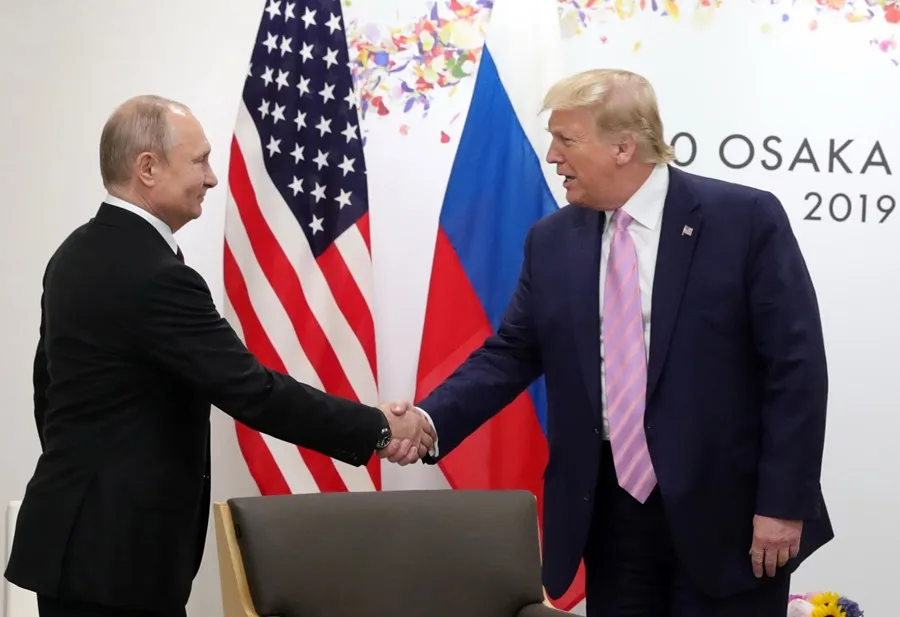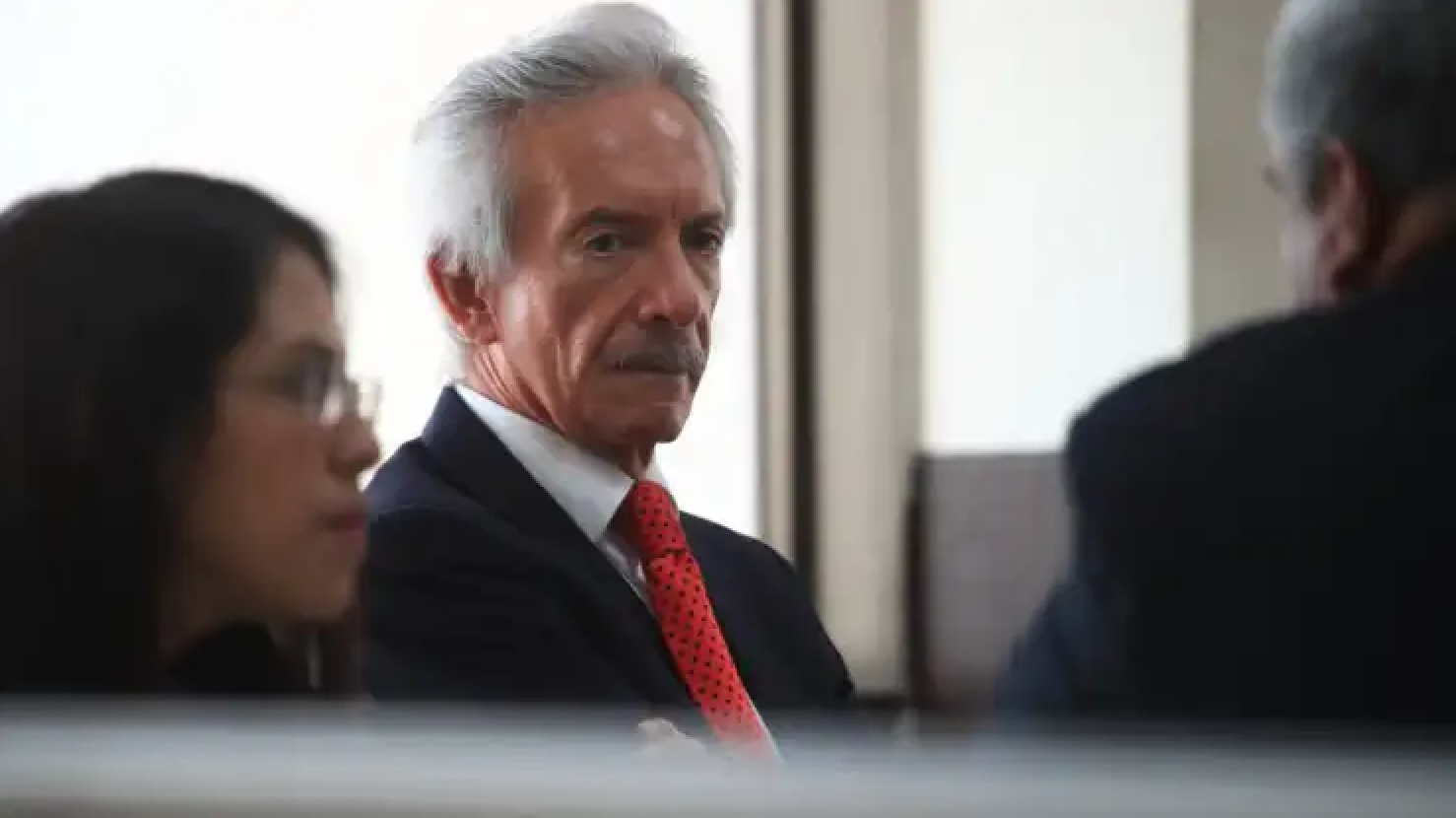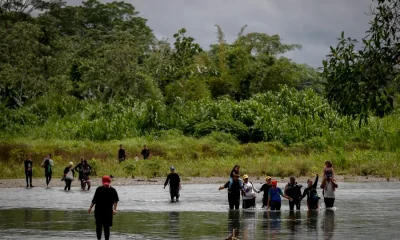International
Cuban dissident says flight to Spain is ‘blow’ to opposition
AFP
Leading Cuban protest leader Yunior Garcia acknowledged Thursday that his flight to Spain following pressure from the authorities on the island was a “painful blow” to the opposition movement.
Garcia, who arrived unexpectedly in Madrid Wednesday with activist wife Dayana Prieto on a tourist visa, added he has no intention to seek asylum in Spain, and had left Cuba because he faced a “living death”.
The 39-year-old actor and playwright is the founder of online discussion group Archipelago which had called for protests in Cuba on Monday that were blocked by the Cuban government.
“I understand that it was a painful blow,” he told a news conference in Madrid when asked about the disappointment expressed by other Cuban dissidents over his abrupt departure.
“I will eventually forgive myself, perhaps for not having had the courage to turn myself to stone or become a bronze statute,” he added.
“Maybe I ask forgiveness for being human, for thinking about my wife and my life, and for escaping what was surely going to be a living death, because that is what awaited me in Cuba.”
Garcia has been the target of a relentless weeks-long campaign to discredit him in Cuban state media and pro-government blogs after Archipelago notified the authorities of the planned march.
He attempted to march alone on Sunday but was prevented from leaving his apartment after police and government supporters surrounded the building.
When he tried to communicate with journalists and others by displaying a white rose at his window, people standing on the roof unfurled a huge Cuban flag to cover the window.
Garcia told the Madrid news conference that his entire family had been “harassed” by the regime and his supporters, his wife told she would lose her teaching post and two decapitated pigeons were left outside his house.
– ‘Totally silenced’ –
“It was something orchestrated by state security forces” to scare us, he said, adding he plans to return to Cuba with his wife once their lives there are no longer “in danger”.
“I am certain the strategy of the regime was to keep me locked at home…totally silenced…the only thing I have is my voice and I could not remain quiet. Someone has to say what is happening in Cuba.”
During an interview with Onda Cero radio, Spanish minister for the presidency Felix Bolanos said Madrid had helped Garcia “with documentation” to facilitate his travel to Spain, without giving further details.
“What we did was a way of helping guarantee that this person would not have difficulties (in Cuba),” he said.
Born in the eastern city of Holguin, Garcia was long known only in the arts world — for his plays, as well as his television and movie scripts.
But since November 27, 2020, when hundreds of artists demanded more freedom of expression at a protest in Havana, he has taken on another role — one of the faces of a new generation critical of the government.
Cuban authorities have accused Garcia, without offering any proof, of being paid by the United States as part of a plot to destabilise the country, a charge he denies.
International
Trump urges Putin to reach peace deal

On Monday, U.S. President Donald Trump reiterated his desire for Russian President Vladimir Putin to “reach a deal” to end the war in Ukraine, while also reaffirming his willingness to impose sanctions on Russia.
“I want to see him reach an agreement to prevent Russian, Ukrainian, and other people from dying,” Trump stated during a press conference in the Oval Office at the White House.
“I think he will. I don’t want to have to impose secondary tariffs on Russian oil,” the Republican leader added, recalling that he had already taken similar measures against Venezuela by sanctioning buyers of the South American country’s crude oil.
Trump also reiterated his frustration over Ukraine’s resistance to an agreement that would allow the United States to exploit natural resources in the country—a condition he set in negotiations to end the war.
International
Deportation flight lands in Venezuela; government denies criminal gang links

A flight carrying 175 Venezuelan migrants deported from the United States arrived in Caracas on Sunday. This marks the third group to return since repatriation flights resumed a week ago, and among them is an alleged member of a criminal organization, according to Venezuelan authorities.
Unlike previous flights operated by the Venezuelan state airline Conviasa, this time, an aircraft from the U.S. airline Eastern landed at Maiquetía Airport, on the outskirts of Caracas, shortly after 2:00 p.m. with the deportees.
Interior Minister Diosdado Cabello, who welcomed the returnees at the airport, stated that the 175 repatriated individuals were coming back “after being subjected, like all Venezuelans, to persecution” and dismissed claims that they belonged to the criminal organization El Tren de Aragua.
However, Cabello confirmed that “for the first time in these flights we have been carrying out, someone of significance wanted by Venezuelan justice has arrived, and he is not from El Tren de Aragua.” Instead, he belongs to a gang operating in the state of Trujillo. The minister did not disclose the individual’s identity or provide details on where he would be taken.
International
Son of journalist José Rubén Zamora condemns father’s return to prison as “illegal”

The son of renowned journalist José Rubén Zamora Marroquín, José Carlos Zamora, has denounced as “illegal” the court order that sent his father back to a Guatemalan prison on March 3, after already spending 819 days behind barsover a highly irregular money laundering case.
“My father’s return to prison was based on an arbitrary and illegal ruling. It is also alarming that the judge who had granted him house arrest received threats,” José Carlos Zamora told EFE in an interview on Saturday.
The 67-year-old journalist was sent back to prison inside the Mariscal Zavala military barracks on March 3, when Judge Erick García upheld a Court of Appeals ruling that overturned the house arrest granted to him in October. Zamora had already spent 819 days in prison over an alleged money laundering case.
His son condemned the situation as “unacceptable”, stating that the judge handling the case “cannot do his job in accordance with the law due to threats against his life.”
-

 Central America5 days ago
Central America5 days agoNicaragua denounces Costa Rica’s position in SICA as aligned with foreign interests
-

 Central America5 days ago
Central America5 days agoNicaragua’s new judicial law consolidates power in Ortega and Murillo’s hands
-

 Central America5 days ago
Central America5 days agoPanama’s president declares Darién gap ‘closed’ amid sharp drop in migrant flow
-

 International3 days ago
International3 days agoSon of journalist José Rubén Zamora condemns father’s return to prison as “illegal”
-

 International5 days ago
International5 days agoMarco Rubio warns Venezuela against military action against Guyana
-

 International3 days ago
International3 days agoMiyazaki’s style goes viral with AI but at what cost?
-

 Central America2 days ago
Central America2 days agoPanama police clarifies that Interpol alert for Martinelli is still pending
-

 International2 days ago
International2 days agoDeportation flight lands in Venezuela; government denies criminal gang links
-

 Central America15 hours ago
Central America15 hours agoU.S. Homeland Security Secretary urges Mexico to strengthen Guatemala border
-

 International15 hours ago
International15 hours agoTrump urges Putin to reach peace deal
-

 Central America15 hours ago
Central America15 hours agoPanama grants Martinelli 72-hour extension to travel to Nicaragua
-
Central America4 days ago
Nicaragua revokes legal status of 10 more NGOs, bringing total to over 5,600















